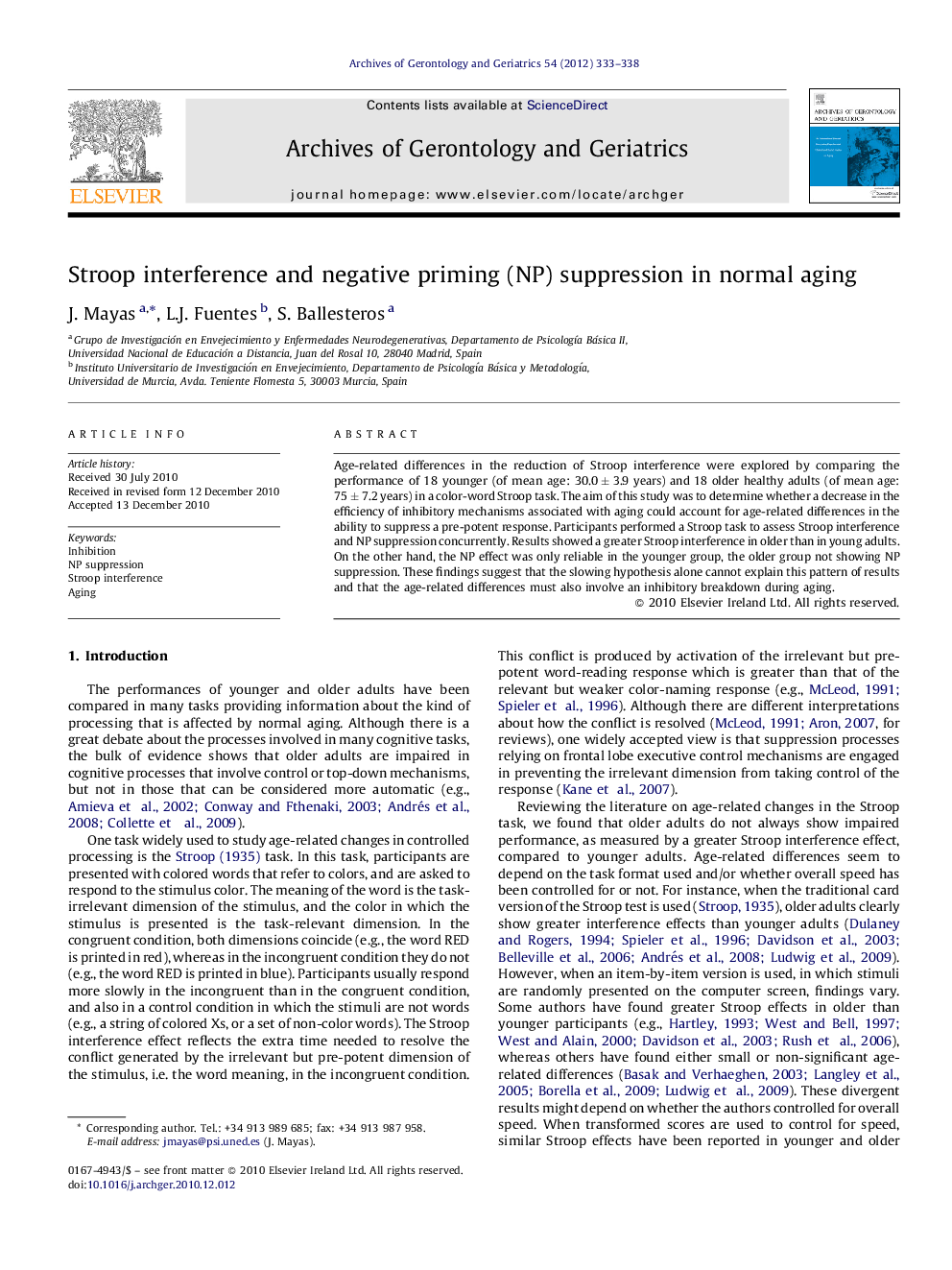| Article ID | Journal | Published Year | Pages | File Type |
|---|---|---|---|---|
| 1902975 | Archives of Gerontology and Geriatrics | 2012 | 6 Pages |
Age-related differences in the reduction of Stroop interference were explored by comparing the performance of 18 younger (of mean age: 30.0 ± 3.9 years) and 18 older healthy adults (of mean age: 75 ± 7.2 years) in a color-word Stroop task. The aim of this study was to determine whether a decrease in the efficiency of inhibitory mechanisms associated with aging could account for age-related differences in the ability to suppress a pre-potent response. Participants performed a Stroop task to assess Stroop interference and NP suppression concurrently. Results showed a greater Stroop interference in older than in young adults. On the other hand, the NP effect was only reliable in the younger group, the older group not showing NP suppression. These findings suggest that the slowing hypothesis alone cannot explain this pattern of results and that the age-related differences must also involve an inhibitory breakdown during aging.
